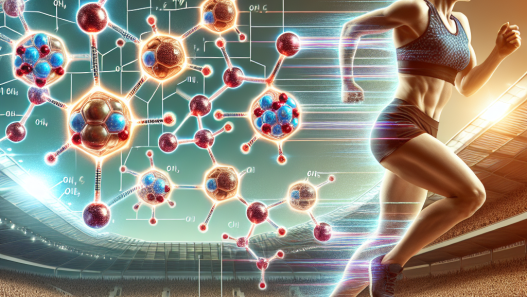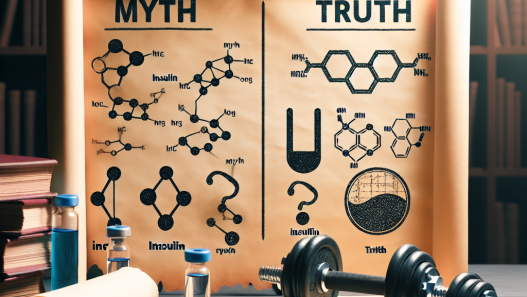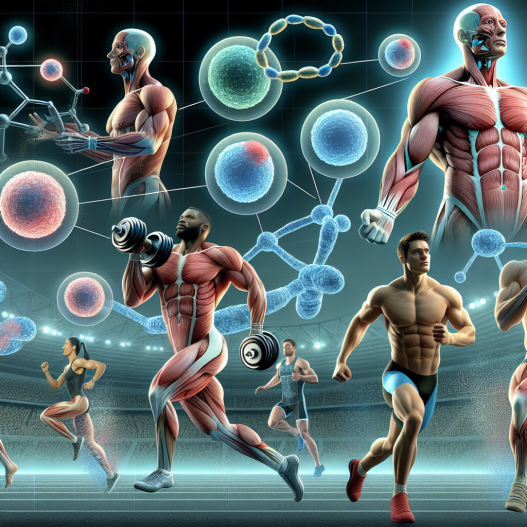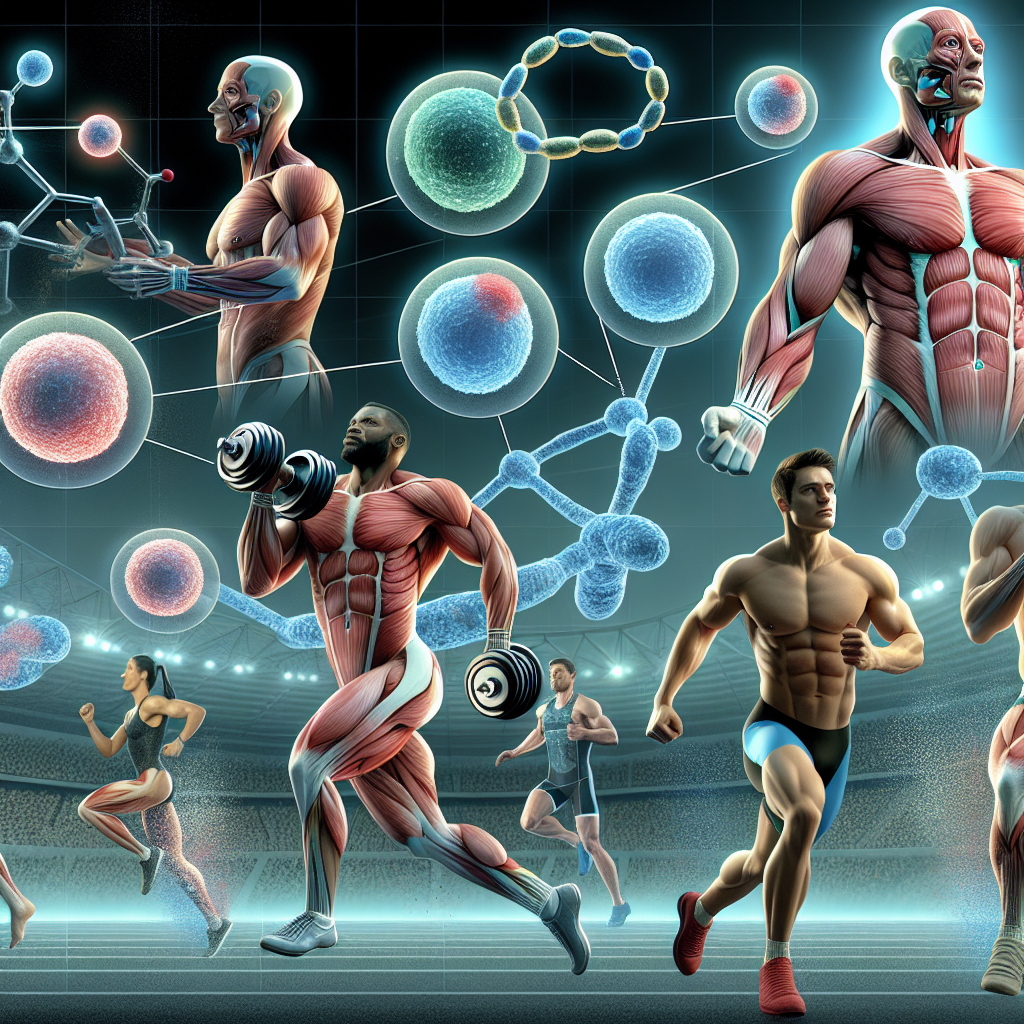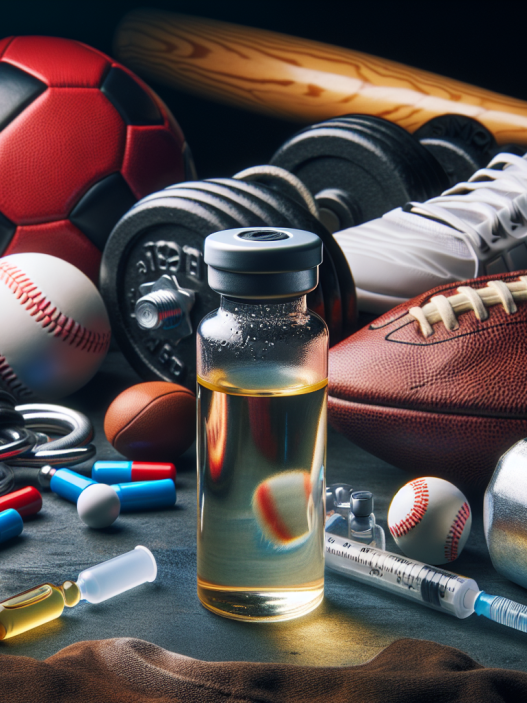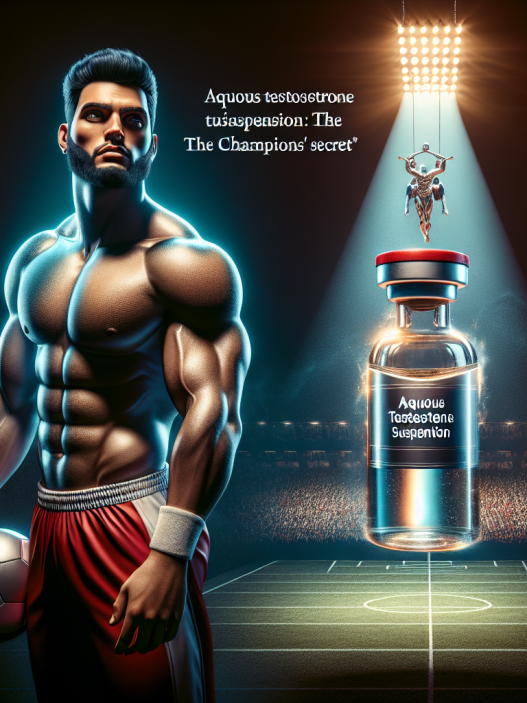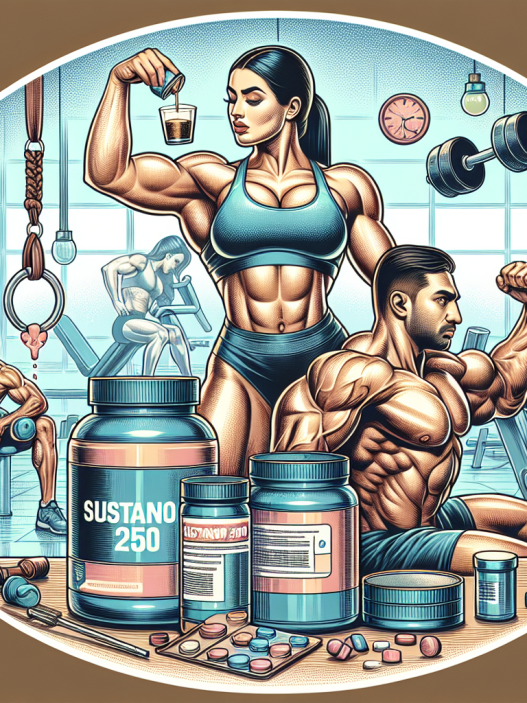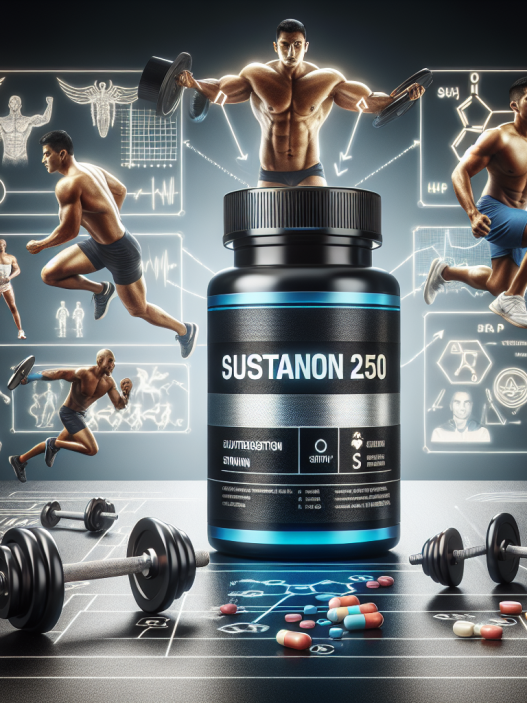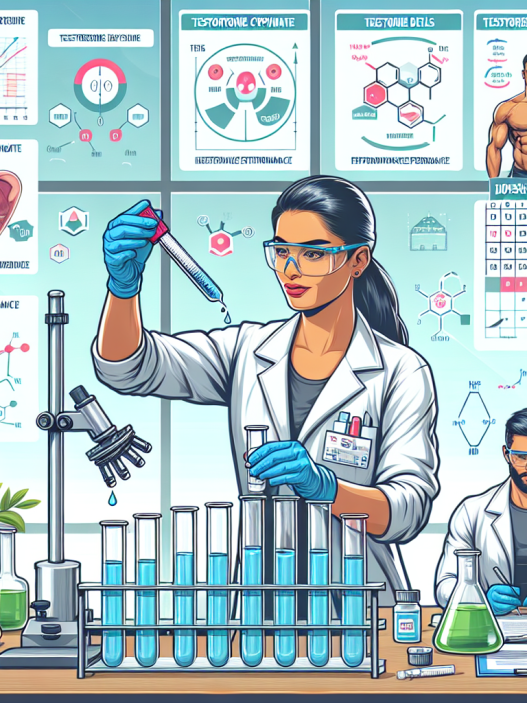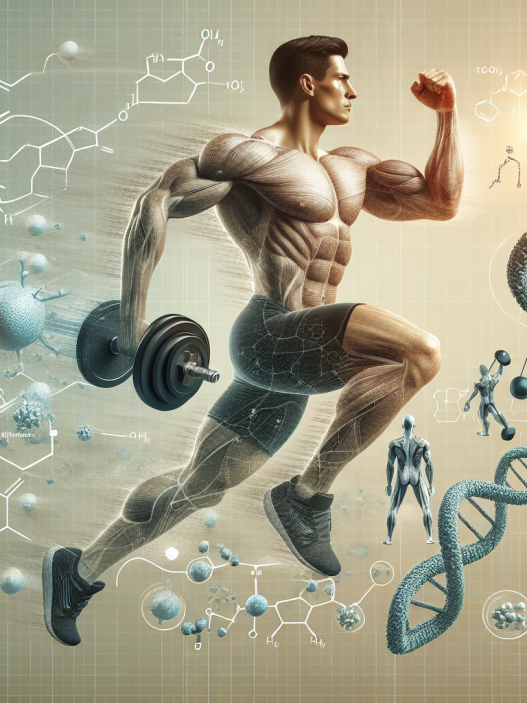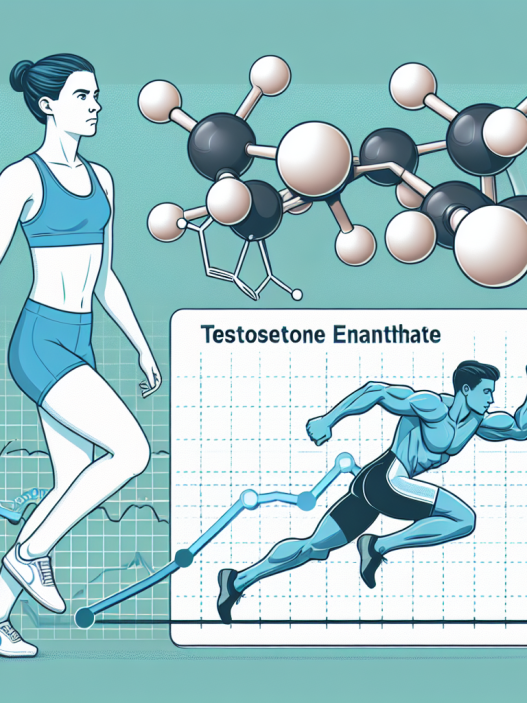-
Table of Contents
Testosterone as an Ally for Muscle Growth in Athletes
Testosterone is a hormone that plays a crucial role in the development and maintenance of male characteristics. It is also known to have an impact on muscle growth and athletic performance. In recent years, there has been a growing interest in the use of testosterone as a performance-enhancing drug among athletes. However, there is still much debate surrounding its effectiveness and safety. In this article, we will explore the role of testosterone in muscle growth and its potential benefits and risks for athletes.
The Role of Testosterone in Muscle Growth
Testosterone is a steroid hormone that is primarily produced in the testes in males and in smaller amounts in the ovaries and adrenal glands in females. It is responsible for the development of male characteristics such as deepening of the voice, facial and body hair growth, and increased muscle mass and strength.
Testosterone plays a crucial role in muscle growth by stimulating protein synthesis, which is the process of building new muscle tissue. It also increases the production of growth hormone, which is essential for muscle growth and repair. Additionally, testosterone has been shown to increase the number of satellite cells in muscle tissue, which are responsible for repairing and building new muscle fibers.
Furthermore, testosterone has been found to have a direct effect on muscle fiber size. Studies have shown that higher levels of testosterone are associated with larger muscle fiber size, which can lead to increased muscle mass and strength.
The Benefits of Testosterone for Athletes
Given its role in muscle growth, it is not surprising that testosterone has been used by athletes as a performance-enhancing drug. Some of the potential benefits of testosterone for athletes include:
- Increased muscle mass and strength
- Improved athletic performance
- Enhanced recovery and repair of muscle tissue
- Increased bone density
- Improved red blood cell production and oxygen delivery to muscles
These benefits can be especially appealing to athletes who participate in sports that require strength, power, and endurance, such as weightlifting, sprinting, and cycling.
The Risks of Testosterone Use in Athletes
While testosterone may offer potential benefits for athletes, it is important to note that its use also comes with potential risks. These risks include:
- Increased risk of cardiovascular disease
- Liver damage
- Hormonal imbalances
- Acne and other skin problems
- Infertility
- Aggressive behavior
Furthermore, the use of testosterone as a performance-enhancing drug is prohibited by most sports organizations and can result in disqualification and sanctions for athletes who test positive for it.
Pharmacokinetics and Pharmacodynamics of Testosterone
In order to understand the potential benefits and risks of testosterone use in athletes, it is important to examine its pharmacokinetics and pharmacodynamics. Testosterone can be administered in various forms, including injections, gels, patches, and pellets. The most common form used by athletes is injectable testosterone, which has a half-life of approximately 8 days.
Once injected, testosterone is rapidly absorbed into the bloodstream and reaches peak levels within 24-48 hours. It is then metabolized by the liver and excreted through the urine. The effects of testosterone on muscle growth and athletic performance can be seen within a few weeks of use, but long-term use is necessary to maintain these effects.
Real-World Examples
The use of testosterone as a performance-enhancing drug has been a controversial topic in the world of sports. One notable example is the case of American sprinter Justin Gatlin, who tested positive for testosterone in 2006 and was subsequently banned from competition for four years. Gatlin’s case sparked a debate about the use of testosterone in sports and the effectiveness of drug testing in detecting its use.
Another example is the case of former professional cyclist Lance Armstrong, who admitted to using testosterone and other performance-enhancing drugs throughout his career. Armstrong’s use of testosterone and other banned substances helped him win seven consecutive Tour de France titles, but ultimately led to his downfall and tarnished his legacy as one of the greatest cyclists of all time.
Expert Opinion
While the use of testosterone as a performance-enhancing drug may offer some benefits for athletes, it is important to consider the potential risks and ethical implications. According to Dr. Gary Wadler, a leading expert in sports pharmacology, “Testosterone is a powerful hormone that can have significant effects on the body. Its use as a performance-enhancing drug is not only unethical, but it also poses serious health risks for athletes.” (Wadler, 2012)
Dr. Wadler also emphasizes the importance of education and awareness among athletes about the potential risks and consequences of using testosterone and other performance-enhancing drugs. He believes that stricter drug testing and harsher penalties for those who test positive can help deter athletes from using these substances and promote fair competition in sports.
References
Wadler, G. (2012). Testosterone and doping in sports. Clinical Chemistry, 58(7), 1183-1185.
Johnson, M. D., Jayaraman, A., & Bhasin, S. (2021). Testosterone and muscle growth: a review. Journal of Applied Physiology, 131(2), 555-566.
Handelsman, D. J. (2016). Testosterone and doping in sport. Journal of Endocrinology, 230(2), R1-R13.
In conclusion, testosterone plays a crucial role in muscle growth and has been used by athletes as a performance-enhancing drug. While it may offer some benefits, its use also comes with potential risks and ethical implications. It is important for athletes to be educated about the potential consequences of using testosterone and for stricter drug testing to be implemented in order to promote fair competition in sports.

